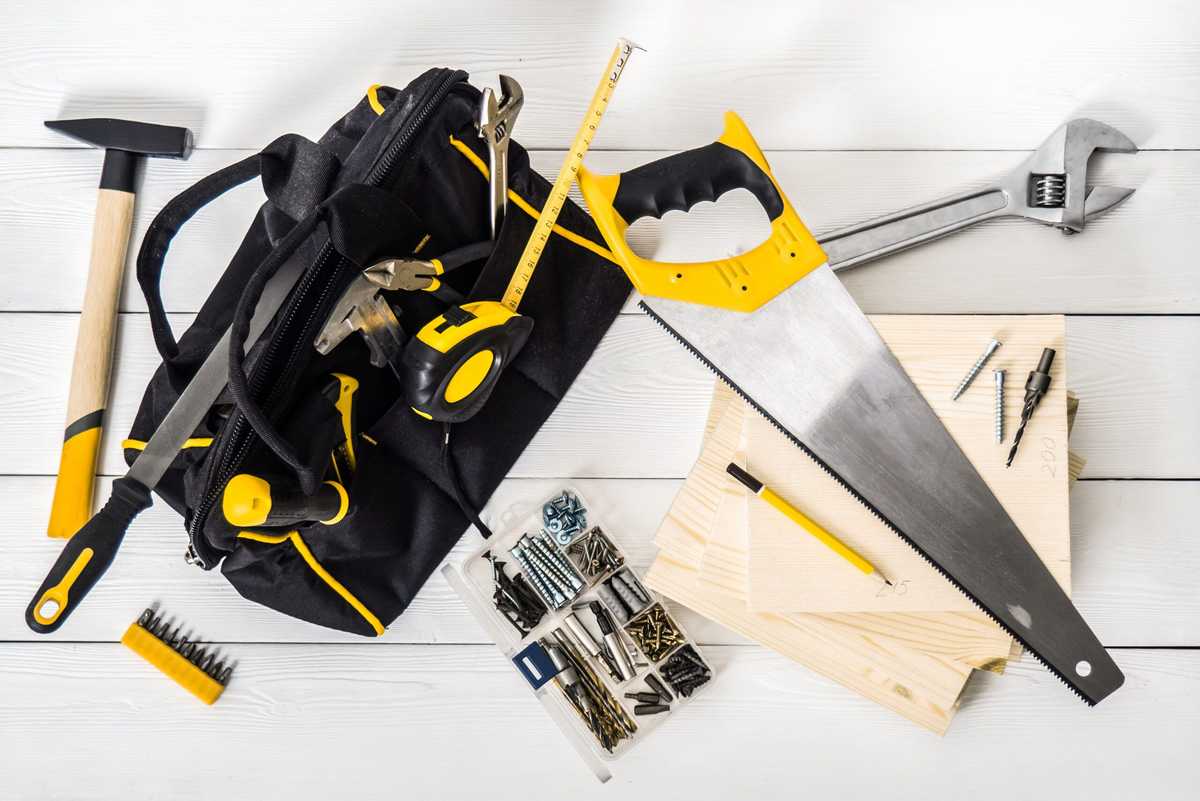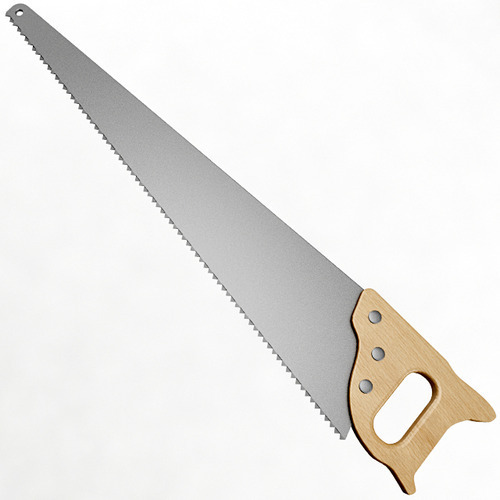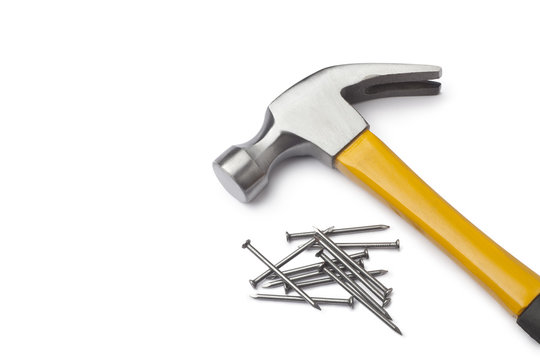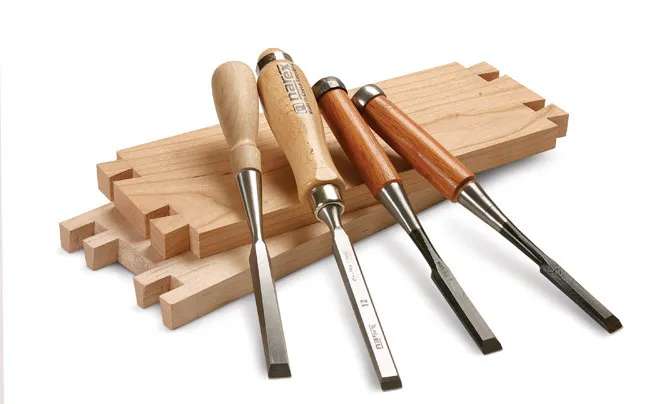
Starting your woodworking journey can be both exciting and a bit daunting. But fear not! With the right set of tools, even beginners can craft wood furnityre pieces. Here’s our list of the 6 important woodworking tools that you should have in your toolkit.
Hand Saw

A hand saw is one of the most basic yet vital tools in woodworking. It’s used for cutting pieces of wood into different shapes and sizes.
Keep in mind that there are various types of hand saws, each suited for specific tasks. If you’re a newbie, a general-purpose hand saw, which features a broad blade and coarse teeth, is perfect for basic cutting tasks. It’s straightforward to use: just mark your cutting line, hold the wood steady, and saw away!
An important tip to remember is that when using a hand saw, let the tool do the work. Apply steady pressure and maintain a consistent angle for smooth cuts.
Hammer and Nails

No woodworking toolkit is complete without a reliable hammer and an assortment of nails. Hammers come in different weights and sizes, but a medium-weight claw hammer is a great all-rounder for beginners.
It serves not just for driving nails into wood but also for removing them, thanks to the claw end.
To achieve a good grip and better control, choose a hammer with a comfortable handle. Start with smaller nails as you learn to aim and control your swing.
Chisels

Chisels are used for carving or cutting wood, especially for detailed work like dovetail joints or smoothing out cut edges.
A good set of bevel-edged bench chisels in various sizes will be immensely useful. These chisels are versatile and can be used for a wide range of woodworking tasks.
As much as possible, always keep your chisels sharp. A sharp chisel not only makes your work easier but also safer. It’s an important skill to learn how to hone them regularly.
Screwdrivers
Woodworking often involves assembling parts, and for that, you’ll need screwdrivers. A set of screwdrivers with various head types (flathead and Phillips are the most common) and sizes is a must-have. Screwdrivers are not just for driving screws; they come in handy for prying things apart or even opening paint cans.
For this, you want to invest in a set with comfortable, non-slip handles. This makes it easier to apply the necessary torque without straining your hand.
Measuring and Marking Tools
Precision is key in woodworking. For this, you need reliable measuring and marking tools. A good quality tape measure, a ruler, a square, and a pencil are essential. The tape measure is used for measuring lengths of wood before cutting, the square ensures your cuts are at the right angle, and the pencil is for marking your measurements on the wood.
When woodworking, always “measure twice, cut once”. This adage is golden in woodworking to avoid mistakes and waste.
Workbench
A sturdy workbench is a central hub for any woodworker. It’s not just a surface to work on; it’s a tool that holds your project in place and ensures stability while you work.
A good workbench should be solid, stable, and at a comfortable height. It often comes with a vice or clamps, which are incredibly useful for holding your workpiece steady while sawing, chiseling, or drilling.
If you’re tight on space, consider a foldable workbench that can be stored away easily. Ensure that it’s easy to set up and stable enough to withstand the kind of work you’ll be doing.
Bonus Tool: Safety Gear
While not a tool per se, safety gear is essential in any woodworking setup. Safety glasses protect your eyes from sawdust and flying debris, while ear protection is important when using power tools.
Gloves can help protect your hands, but be cautious as they can also get caught in tools. You should always wear your safety gear, no matter how small the task. It’s better to be safe than sorry!
Conclusion
Woodworking is a rewarding hobby that allows you to create with your hands. Remember, the key to success in woodworking, besides having the right tools, is practice, patience, and attention to safety.
So, gear up, start with simple projects, and gradually move to more complex ones as you gain confidence and skills. Happy woodworking!
